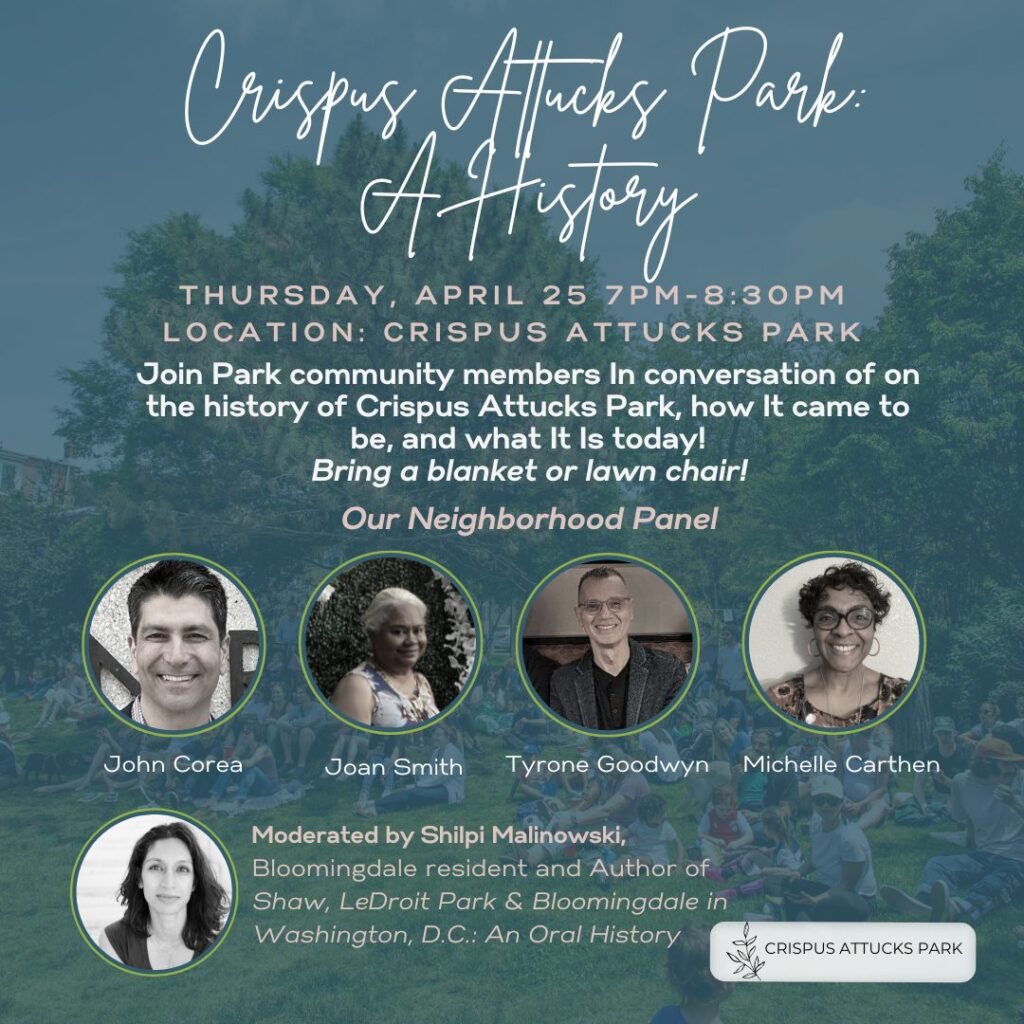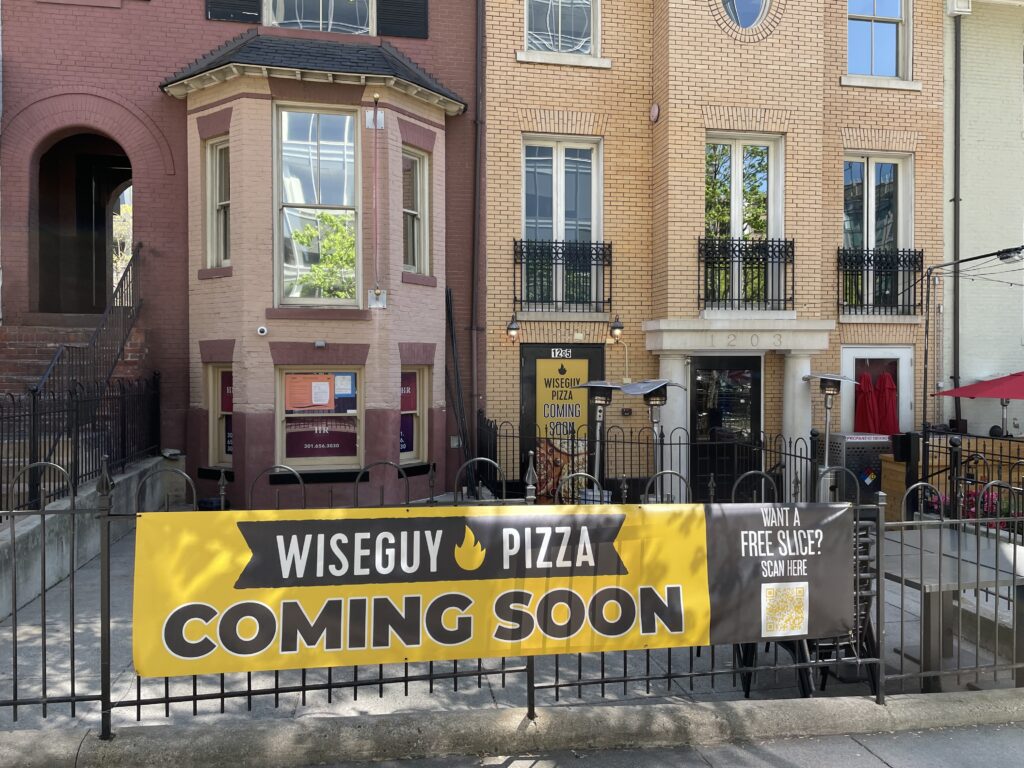
Photo by PoPville flickr user ekelly80
“Dear PoP,
I am curious if anyone out there knows how to test for lead in a home’s water supply. I am super concerned following the news from the CDC, and as a new home owner I have no idea what was or wasn’t replaced in my house earlier this decade. Is this something you can test for yourself or do you have to hire someone? Any recommendations?”
DC Water sent out a press release which at the end says they:
“can provide free lead testing and give recommendations for identifying and correcting potential lead sources in the home or other preventive measures. Please contact DC Water at 202-354-3600.”
After the jump read the full press release from DC Water titled, “DC Water Reaffirms its Understanding of Lead”:
In response to a recent study released by the Centers for Disease Control and Prevention (CDC), the District of Columbia Water and Sewer Authority (DC Water) reaffirms its understanding of lead as a potential public health risk and continues proactive measures to minimize lead in household drinking water. It is important to recognize that the CDC report findings 1) are from data during the time period 1998 to 2006 and 2) confirm DC Water’s decision several years ago to discontinue the lead line replacement program and initiate a series of protective steps in the limited number of cases when partial replacements are done today.
“DC Water recognizes lead exposure as a preventable health risk,” said General Manager George S. Hawkins. “We emphasize that we have met all standards for lead-in-water since 2005, yet still encourage anyone concerned about the quality of their drinking water to contact us. We can provide water quality testing and information on potential lead sources.”
“The issues highlighted in the CDC study confirm information that DC Water has received from health advocates and the research community in previous years. We have continued to enhance our efforts to inform and protect households with lead service pipes,” added Hawkins. “This study and many others continue to shape how we coordinate and communicate with residents about lead in household tap water and its associated public health risks.”
DC Water continues to operate a robust program to address lead in drinking water. This includes monitoring household lead levels to ensure drinking water is in compliance with the Environmental Protection Agency’s (EPA) drinking water standards, conducting research on household plumbing characteristics, offering free lead testing, and strengthening relationships with District residents to encourage full lead service replacements on public and private property.
Lead levels in the District continue to remain below the EPA action level and these samples include households with partial and full lead service pipes. However, DC Water recognizes that lead levels can vary among individual households and works with residents to identify known risks.
In 2008, DC Water discontinued an accelerated program to replace lead service pipes in the District. This program was implemented in response to an EPA mandate and resulted in a large number of partial lead service replacements. In response to research indicating that partial lead service replacements are not effective in reducing lead levels, DC Water modified its lead service replacement program. The partial lead service line replacements (replacing the lead service line from the water main in the street to the property line, but leaving the lead service line from the property line into the home) can cause agitation that temporarily releases lead into the home. This can cause a temporary spike in lead levels. The current science, and philosophy of DC Water, recommends full service replacements rather than partial.
Currently, lead service replacements are conducted in conjunction with water main replacement projects when DC Water must replace the water service pipe to connect to a new water main. DC Water urges customers to replace the private lead service pipe during this time. Residents can also choose to voluntarily replace their lead service pipe in private property and DC Water will replace the portion in public space.
“DC Water has proactively responded to research relative to lead exposure after a lead pipe replacement and implemented various protective measures for residents,” said Hawkins. “These measures include a six-month supply of water filters and free follow-up lead testing.”
Minimizing lead in drinking water and preventing exposure requires a collaborative effort by the U.S. Army Corps of Engineers Washington Aqueduct (responsible for drinking water treatment),
DC Water and individual residents. Since 2004, the addition of orthophosphate, a food-grade chemical used in the treatment process, has been effective in reducing the release of lead in water, including from lead service pipes. The Washington Aqueduct is responsible for ensuring that water treatment prevents pipe corrosion and minimizes the release of metals into water as it travels through water service pipes and to customer taps.
The role of District residents is to take precautionary steps if they are concerned about lead in their tap water. First, customers should identify potential lead sources on their private property, including a lead service pipe, lead solder, brass fixtures or galvanized plumbing. Residents with lead service pipes should consider replacement. If replacing service pipes or household plumbing is not a practical option, customers are encouraged to use a water filter certified for lead removal. This is particularly important for pregnant women and children under six.
Anyone with questions or concerns is encouraged to contact DC Water. The Authority can provide free lead testing and give recommendations for identifying and correcting potential lead sources in the home or other preventive measures. Please contact DC Water at 202-354-3600.
Recent Stories

Photo by Beau Finley Ed. Note: If this was you, please email [email protected] so I can put you in touch with OP. “Dear PoPville, Him, dapper chap with a light…

For many remote workers, a messy home is distracting.
You’re getting pulled into meetings, and your unread emails keep ticking up. But you can’t focus because pet hair tumbleweeds keep floating across the floor, your desk has a fine layer of dust and you keep your video off in meetings so no one sees the chaos behind you.
It’s no secret a dirty home is distracting and even adds stress to your life. And who has the energy to clean after work? That’s why it’s smart to enlist the help of professionals, like Well-Paid Maids.

Unlock Peace of Mind for Your Family! Join our FREE Estate Planning Webinar for Parents.
🗓️ Date: April 25, 2024
🕗 Time: 8:00 p.m.
Metropolitan Beer Trail Passport
The Metropolitan Beer Trail free passport links 11 of Washington, DC’s most popular local craft breweries and bars. Starting on April 27 – December 31, 2024, Metropolitan Beer Trail passport holders will earn 100 points when checking in at the
DC Day of Archaeology Festival
The annual DC Day of Archaeology Festival gathers archaeologists from Washington, DC, Maryland, and Virginia together to talk about our local history and heritage. Talk to archaeologists in person and learn more about archaeological science and the past of our






